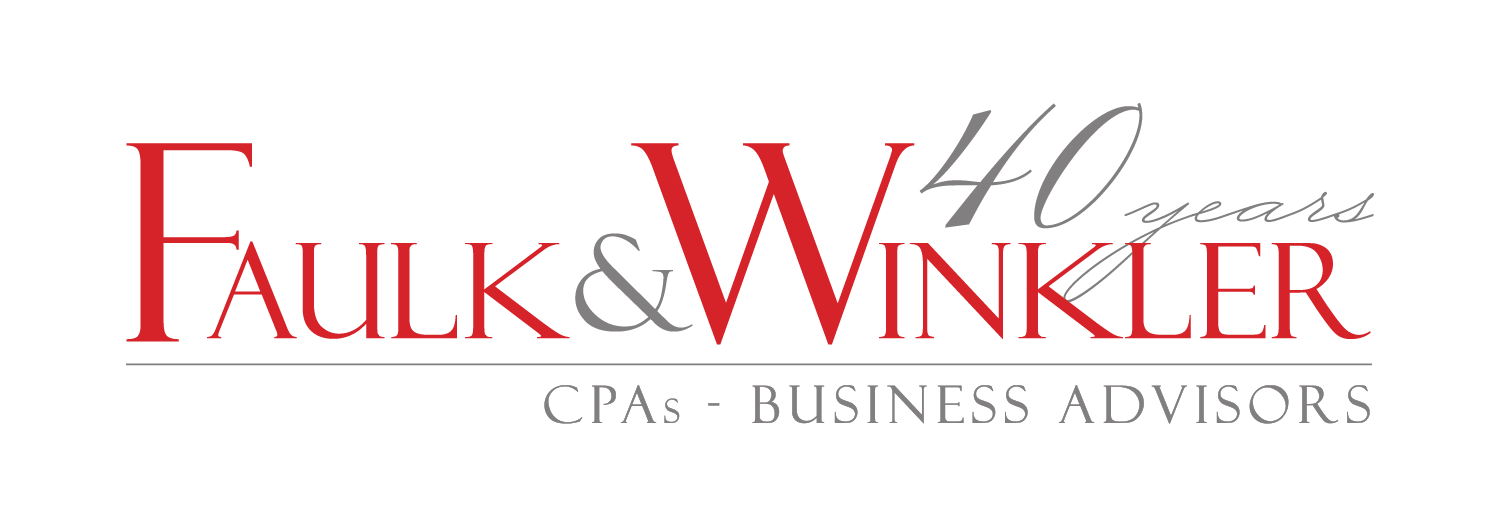CARES Act
At Faulk & Winkler, we are deeply aware of the impact of the coronavirus (COVID-19). We are taking steps to provide for the continuity of our client services and the safety of our employees and clients as we navigate through the uncertainty of the outbreak. As our loyal clients and friends, we hope you are staying safe and healthy in these uncertain times.
After much anticipation, on March 27, 2020, the US Congress passed the Coronavirus Aid, Relief, and Economic Security Act (CARES), a $2 trillion economic stimulus package to provide assistance to individuals, families, and businesses negatively affected by the Coronavirus pandemic. The CARES Act is currently awaiting approval from the President before becoming law. While this piece of legislation is large, complex, and continuously evolving, the main provisions affecting our clients at this time are as follows:
$301 billion in direct payments to households
Qualifying individual and joint filers eligible for advanced tax credit rebates of $1,200 and $2,400, respectively, and increased by $500 for each dependent child
Phase-out will begin for individuals and joint filers at $75,000 and $150,000, respectively, and become completely phased out at $99,000 and $198,000, respectively
$349 billion in loans to small businesses
Includes some expansion of the SBA Economic Impact Disaster Loan Program
Includes expansion of the SBA 7(a) loan program called the Paycheck Protection Program
Maximum loan amounts will be the lesser of $10 million or 2.5x average monthly payroll for the previous year
Funds can be used to fund payroll and most related benefits, including insurance premiums, mortgage payments, rents, and utilities
Funds spent on payroll costs, interest on mortgages, rent, and utilities for the 8-week period following loan origination could be forgivable
Unforgiven amounts to convert into a loan with repayment period not to exceed 10 years and interest not to exceed 4%
Will be required to maintain employee count and wage level to obtain forgiveness
$221 billion in a variety of tax benefits to businesses
Employers and self-employed individuals will be able to defer payments of the employer share (6.2% of employee wages) of Social Security payroll taxes that would have otherwise been owed from the date of enactment of the legislation through December 31, 2020. The provision requires that the deferred taxes be paid over a two-year period, with half the amount required to be paid by December 31, 2021, and the other half by December 31, 2022.
More details can be found here: https://www.journalofaccountancy.com/news/2020/mar/cares-act-economic-relief-coronavirus-tax-provisions.html
$250 billion for expanded unemployment insurance benefits
Expansion of $600/week of unemployment compensation for up to 4 months
Expansion to provide an additional 13 weeks of unemployment benefits beyond current state law
Expansion of unemployment recipients to include self-employed, independent contractors, and other persons not previously eligible
$150 billion in direct aid to states
Please contact Scott Lazarone slazarone@fw-cpa.com or Alex Tucker atucker@fw-cpa.com for more information.
Sincerely,
Faulk & Winkler, LLC
Baton Rouge, Louisiana
